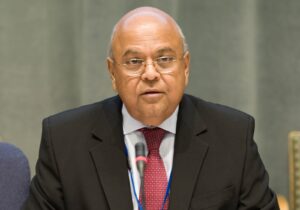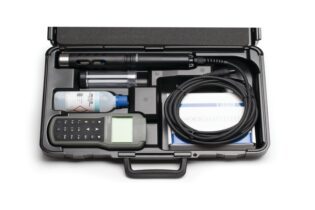When Public Enterprises Minister Pravin Gordhan sought a solution not only for Transnet’s locomotive woes but also to address South Africa’s broader energy and logistical challenges during a recent visit to China, a consortium led by China’s state-owned enterprise, the China Communications Construction Company (CCCC), sprang into action.
According to Moneyweb, the extensive R250 billion blueprint, which they presented to Gordhan in August, underscores a clear message: South Africa requires a comprehensive revival plan for its economy, reminiscent of the post-World War II U.S. Marshall Plan for Europe’s economic rejuvenation. This initiative aligns with the Chinese government’s Belt and Road Initiative, initiated in 2013 by President Xi Jinping, focusing on infrastructure investments spanning over 150 countries worldwide—a pivotal component of Xi’s foreign policy. South Africa has grappled with persistent daily power outages, ranging from two to ten hours, throughout the year due to an electricity supply unable to meet even diminishing demand. Moreover, industries such as mining, manufacturing, and agriculture have encountered mounting difficulties in transporting their goods to market, especially for export, attributable to the deteriorating rail and port services provided by Transnet. The Minerals Council SA has approximated mining sector losses attributed to Transnet’s issues at R30 billion, forcing certain members to initiate workforce reductions,” a source disclosed. Transnet has recently witnessed the departure of several high-ranking executives, including Group CEO Portia Derby, Group CFO Nonkululeko Dlamini, and Siza Mzimela, CEO of Transnet Freight Rail (TFR), its most substantial subsidiary. The timeline for permanent replacements in these key positions remains uncertain. Mzimela attributes Transnet’s challenges primarily to its locomotive issue, arising from a troubled contract with China Railway Rolling Stock Corporation (CRRC) for the purchase of 1,064 new locomotives. This contract faced legal setbacks and lingering disputes between the two entities. Consequently, CRRC has withheld the delivery of numerous locomotives, along with spare parts for those Transnet managed to receive. CCCC is now putting forth a proposal to lease all locomotives, along with coaches and railway lines, from Transnet and to appoint an operator equipped with state-of-the-art rail management systems to provide services,” as per an official statement.“However, the primary focus of this plan will be on the route connecting the harbors in Durban, Richards Bay, and Maputo to the mineral-rich regions of Gauteng, Limpopo, Mpumalanga, and North West,” the statement continued.
“The proposal outlines intentions to augment the coal line’s capacity to Richards Bay, elevating it from 80 million tons to 130 million tons. It also entails enlarging the Overvaal tunnel, eliminating other bottlenecks, and extending the rail line to encompass the coal fields in the Waterberg region. The three factors: The proposal includes the establishment of a novel freight and rail hub located beyond Johannesburg, aimed at replacing the ineffective City Deep facility,” an official disclosed. “Furthermore, it aims to enhance the Port of Richards Bay’s capability to manage large-scale mineral and container train shipments, ultimately reducing the reliance on road transportation and mitigating damage to road infrastructure. “The second factor involves the enhancement of mineral beneficiation in the country, to the extent permitted by the availability of energy,” a spokesperson revealed. “In pursuit of this objective, the consortium envisions the establishment of a beneficiation park in Richards Bay, a project it anticipates could be completed within three years following the feasibility study.” “The third factor pertains to the provision of cleaner energy sources. This could involve utilizing gas sourced from Mozambique, necessitating the construction of a new subsea pipeline. Alternatively, it could entail leveraging the recent discovery near Secunda in Mpumalanga. In either case, the gas would power a new gas-fired power plant constructed in Richards Bay. This plant would serve the beneficiation park and supply electricity to the KwaZulu-Natal region,” the spokesperson elaborated. A spokesperson from China Harbour Engineering Company (CHEC), a subsidiary of CCCC, affirmed on Friday that the consortium is awaiting confirmation from the South African government regarding their interest in the proposed initiative, referred to as the Marshall Plan. The consortium recommends initiating a Memorandum of Cooperation between the South African and Chinese governments as the initial step to establish guidelines for the implementation process. This, they believe, would “impart legitimacy to the project and facilitate fundraising efforts,” the spokesperson stated.






